This fucking useless dictator has no authority to lecture other dictators on managing their respective dictatorship.
-
IP addresses are NOT logged in this forum so there's no point asking. Please note that this forum is full of homophobes, racists, lunatics, schizophrenics & absolute nut jobs with a smattering of geniuses, Chinese chauvinists, Moderate Muslims and last but not least a couple of "know-it-alls" constantly sprouting their dubious wisdom. If you believe that content generated by unsavory characters might cause you offense PLEASE LEAVE NOW! Sammyboy Admin and Staff are not responsible for your hurt feelings should you choose to read any of the content here. The OTHER forum is HERE so please stop asking.
You are using an out of date browser. It may not display this or other websites correctly.
You should upgrade or use an alternative browser.
You should upgrade or use an alternative browser.
SG in ménage à trois with US and China for next 30 years
- Thread starter LITTLEREDDOT
- Start date
Ie. Important to flood Singapore with Yankees and PRCS no jobs for Sinkies!
US and China can have better outcomes through engagement, rather than containment: Lawrence Wong
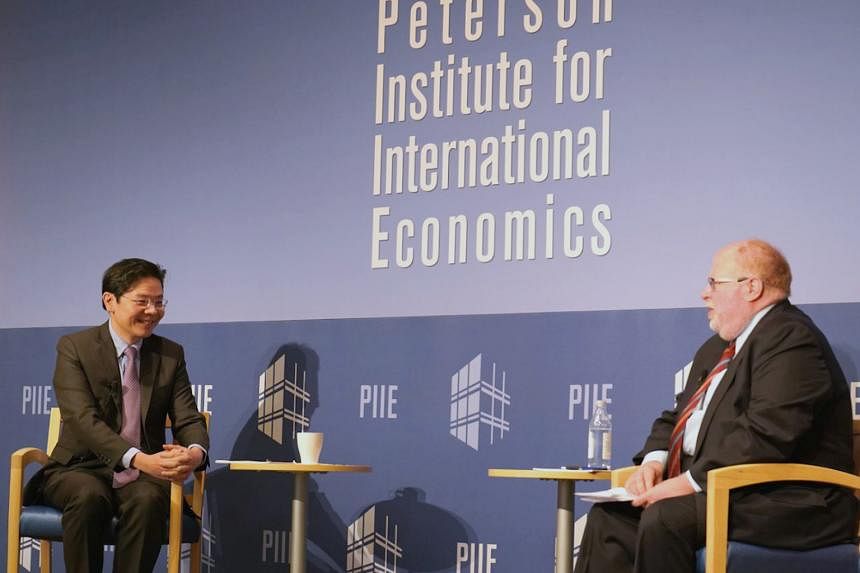
Finance Minister Lawrence Wong at a dialogue with Peterson Institute for International Economics president Adam Posen. PHOTO: MINISTRY OF FINANCE
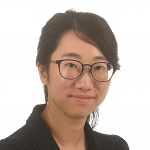
Sue-Ann Tan
Business Correspondent
Apr 19, 2022
SINGAPORE - America and China will generate better outcomes for the world by continuing engagement and finding ways to work together on issues that affect everyone, said Finance Minister Lawrence Wong on Monday (April 18).
This will be better than trying to contain China's rise, which will be difficult, ineffective and ultimately destabilising for all, including the United States, he added.
Mr Wong was discussing global economic issues at a dialogue at the Peterson Institute for International Economics in Washington chaired by the think-tank's president Adam Posen.
Dr Posen had asked him how a small, democratic, free market economy like Singapore plans to cope in a world where it seems the US and China are going to diverge in a lasting way.
Mr Wong replied: "It's quite clear that the relationship between the US and China is the most important relationship in the world, and will have consequential impact on the future of the world.
"It is indeed worrying that there is a loss of mutual trust and confidence on both sides. Relations have become more strained after the war (in Ukraine)."
However, the minister added: "We see that there has been contact between the leaders, including at the highest levels. We hope that will help to ensure that rational and sensible calculations are made and keep the relations whole, so that you don't end up in a situation where there is complete divergence or even outright confrontation, which will have a disastrous impact for the whole world."
Part of the issue is how America chooses to respond to China's rise, Mr Wong said.
He observed that some years ago, there was a view that bringing China into the system as a stakeholder would ensure that it has a vested interest in the status quo. But that view has now changed, he added.
"Trying to contain China's rise... will only cause China to redouble its determination to become more self-reliant, to grow its own little giants and to develop its own indigenous technology. Keeping China out of the system will only cause China to develop its own parallel system with its own rules," he said.
A better outcome would be for both countries to work together on issues where there are shared interests, he suggested.
"The reality is China will develop on its own and America will not be able to cause China to become more like America. But despite these differences, both the US and China have many shared interests, not least on global issues like climate change, pandemic response or even nuclear proliferation," he said.
"If we can find a framework for the two sides to continue to compete, but within a framework of shared interests and interdependencies, and work together on the shared issues for mutual benefit, we will be able to achieve a safer and better world."
Is it possible, Dr Posen asked, to see a path forward where the US and its allies contain China from a national security point of view, say by having security alliances, but allow it to grow economically?
Mr Wong said he expected America will continue to think through its options and develop security linkages, but added that security was also about building institutions that will move countries away from a path of "hot conflict" further down the road.
What happened in Ukraine, for example, was not just about what happened recently, but about the accumulation of decisions made over years, even decades, he said.
"What sort of institutions can we form in the Asia Pacific? What sort of engagements can we have that would best deter countries from a path of conflict?
"We shouldn't think about security and economic engagement in binary or mutually exclusive terms. We should think of it more broadly as strategic engagement and building institutions that will enable the framework of shared interests and interdependencies to grow," he added.
Dr Posen also asked Mr Wong about China applying to join the Comprehensive and Progressive Agreement for Trans-Pacific Partnership or CPTPP, a free trade agreement between 11 countries including Singapore that built on the Trans-Pacific Partnership after the Donald Trump administration withdrew from the pact.
Mr Wong noted that Beijing's application should go through due process.
He noted that Asia has other forums like Asia-Pacific Economic Cooperation, the East Asia Summit, and more recently the Biden administration's new Indo-Pacific Economic Framework, which Singapore supported as a platform to engage Asia more substantively.
And he hoped the framework would remain open and inclusive too.
"If China were to say we would like to join the Indo-Pacific Economic Framework, well, if they meet the standards, why not? And if we were to have that in mind in designing our regional architecture - open, inclusive, ensuring that all the major powers have stakes in the region - that's a way for us to build shared interests, interdependencies, and... ensure a path away from a conflict down the road," he said.
Dr Posen also asked about Singapore's method of using exchange rate as the basis for monetary policy.
Mr Wong said: "It's a framework that is appropriate to small and open economies. For an economy like Singapore where trade is more than three times the size of our gross domestic product, in fact, the exchange rate has a very predictable relationship with inflation. So this framework has worked well for us."
This method also works because Singapore has always been transparent about its instrument, objectives and outcomes, which ensures a certain predictability in the conduct of monetary policy and discipline in how exchange rates are set, he added.
There is also a clear focus that monetary policy should only be used to secure the objective of low and stable inflation, and not for other objectives like ensuring export competitiveness, he said.
Never cross legs like Pinky
S'pore is second most influenced by China in the world, according to Taiwan report
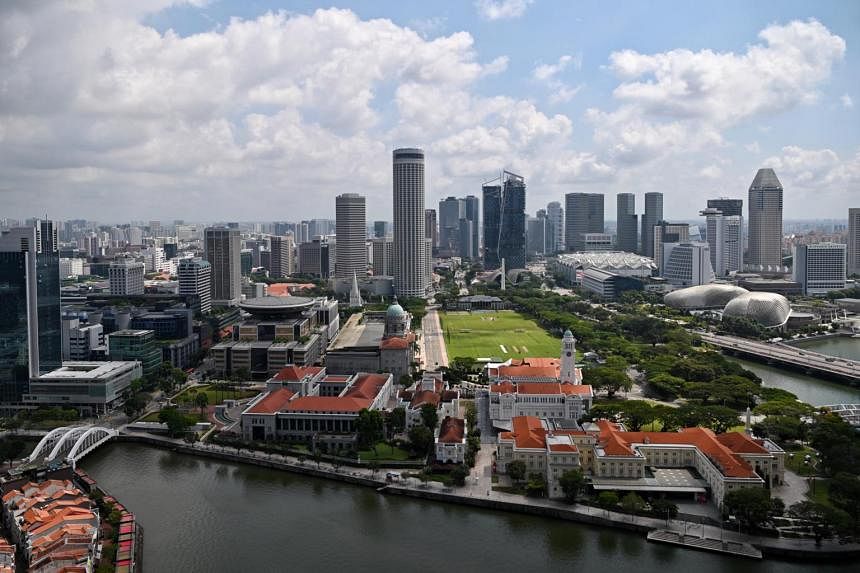
Singapore was found to be especially susceptible in the areas of technology, society and academia. ST PHOTO: KUA CHEE SIONG

Justin Ong
Political Correspondent
Apr 26, 2022
SINGAPORE - Singapore has been ranked second in the world - behind Cambodia and just ahead of Thailand - in a study measuring China's expanding influence on countries.
In the areas of technology, society and academia - but less so for domestic politics - the Republic was found to be especially susceptible to the exposure, pressure and effect of Beijing's influence, according to the China Index launched late on Monday (April 25) by Taiwan-based research outfit Doublethink Lab.
The inaugural index placed the Philippines in sixth, Malaysia eighth and Taiwan ninth with Australia rounding off the top 10.
Bosnia and Herzegovina, Colombia and Paraguay were identified as least influenced by China, in a list spanning 36 territories across Asia, Europe, Australasia, Africa and the Americas.
In 15th position was the United States, which remains embroiled in an intense multidimensional rivalry with an ascendant China.
The index is billed as the first to gauge the extent of Chinese influence using comparable data, collected from March to August 2021 and involving 99 indicators across nine domains: media, foreign policy, academia, domestic politics, economy, technology, society, military and law enforcement.
The indicators further fall into three categories: exposure - how vulnerable the country is; pressure - actions taken by China to change the behaviour of people in the country; and effect - the degree to which the country accommodates China, and the impact of these actions.
A committee convened by Doublethink Lab designed the indicators, each of which was then assessed on a four-point scale by at least two anonymous local experts - either academics, journalists, researchers or community leaders - who must provide corresponding evidence.
The eight-person committee largely comprised US and Western analysts such as Ms Bonnie Glaser from the US research institution German Marshall Fund and Ms Nadege Rolland from the Washington-based think-tank National Bureau of Asian Research, with the exception of Mr Roy Chun Lee from the Taiwan WTO and RTA Centre at Chung-Hua Institution for Economic Research.
Singapore's percentage scores were higher than the world average across all domains except for domestic politics, which evaluates China's efforts to influence the political landscape in a country.
These findings follow a Pew Research Centre survey released in June 2021, which found that 64 per cent of Singaporeans had a favourable view of China, and that Singaporeans were the only ones in the world to view China more positively than the US.
In September last year, French think-tank Irsem (Institute for Strategic Research at France's Military College) also identified Singapore - where ethnic Chinese make up about three-quarters of the citizen and resident populations - as being particularly vulnerable to Chinese influence.
Singaporeans have also been observed taking to online forums to share anecdotes of fathers and grandfathers being "self-radicalised" by Chinese propaganda.
The China Index pointed to the popularity of the WeChat messaging platform among older Chinese-speaking adults here - and TikTok for the younger demographic - as evidence of Chinese influence in the technology domain. The domain looks at the activity and financial leverage of Chinese companies in the tech sector, the use of Chinese hardware, and bilateral research partnerships.
Singapore topped this area, with Indonesia coming in second.
Singapore also registered the third-highest score - with Taiwan coming in first - in the domain of society, which assesses China's soft-power efforts and hold over local organisations and citizens.
Here, the index cited the Hua Yuan and Tian Fu clan associations, which are made up of mostly new Chinese immigrants to Singapore, and whose heads have been invited as special observers at either national- or province-level political consultative conferences in China.
In academia, Singapore also placed third, with the US first and Germany second. The index noted Chinese-language teachers have been hired from China to work in schools and tuition centres, along with reports of Chinese-language curriculum material increasingly following China's standards.
Singapore was fifth when it came to China's economic leverage over policy or corporate behaviour, with New Zealand top of the table. The index said that in 2016, after an arbitral tribunal's ruling against China's claims to a handful of islands in the South China Sea, Singapore businesses were reportedly "warned" that Singapore's insistence on international law could jeopardise their commercial position in China.
In the domain of foreign policy, the index claimed that Singapore has become "visibly quieter" over the South China Sea dispute and international rule of law relating to China ever since the 2016 detention of Singapore's army vehicles in Hong Kong while en route home from Taiwan.
The China Index also cited Singapore Technologies Kinetics and its subsidiary Guizhou Jonyang Kinetics producing an all-terrain personnel carrier based on the Bronco armoured vehicle used by Singapore's army, as a proof point under the military domain. The carrier reportedly saw service in Tibet recently, in support of China's People's Liberation Army troops deployed in the Himalayas.
In the media domain, former foreign minister George Yeo and academic Kishore Mahbubani were described as part of "an increasing number of prominent individuals" in Singapore promoting the Chinese official line on current affairs. The index also pointed to Singapore's media outlets hiring China natives, with some in prominent positions hosting or editing news shows.
It also identified a little-known YouTuber called Noel Lee, believed to be Singaporean, who started publishing in March 2021 videos on China that include denials of human rights abuses in the Xinjiang region. Mr Lee's clips are reportedly being shared on messaging platforms like WhatsApp.
Political analyst Chong Ja Ian from the National University of Singapore said the presence of Chinese influence in Singapore was unsurprising, given the significance of economic, social, academic, and technological interactions between the two countries - something which successive administrations here have promoted since the 1990s.
"Such interactions also come with Singapore being a small, open economy, which makes cooperation and collaboration especially important," said the associate professor.
"The question is whether such presence translates into such issues as stress on society; the distortion of the political process that unduly advantages some while excluding others; or results in policies that may not serve overall public interest as well as they should."
Noting that these were issues the China Index could not answer, he suggested that one way to build on the findings was to move towards greater transparency - in, for example, interactions that the state and officials have with both local and international businesses and other players.This, said Prof Chong, could help increase public vigilance against potentially risky forms of influence or interference over policy and legislation.
Top 10 territories most influenced by China
1. Cambodia2. Singapore
3. Thailand
4. Peru
5. Kyrgyzstan
6. Philippines
7. Tajikistan
8. Malaysia
9. Taiwan
10. Australia
Source: Doublethink Lab
ST CloseUp: The rise of pro-China Singaporeans and what it means for Singapore
CloseUp: Three Chinese Singaporeans who call themselves fans of China - at a time when the Asian giant and the US are warring for influence in a multi-dimensional struggle. A think-tank poll found that most Singaporeans view China favourably.

Justin Ong
Political Correspondent
PUBLISHED
MAR 20, 2022
SINGAPORE - He runs his own tuition business, but Mr Michael Chan's biggest classroom is the website Quora.
There, the 50-year-old father of four has amassed millions of views over nearly a decade of responding to thousands of questions - many of which are about China.
Through posts that explain communism or rebut what he sees as Western media bias against Beijing, he sees his role as helping people better understand China.
This mission to enlighten comes from what he describes as a "pro-China" position - at a time of heightened tensions between the Asian giant and the United States.
He is not alone. According to a Pew Research Centre survey released in June 2021, Mr Chan's favourable view of China is shared by a majority - 64 per cent - of Singaporeans. Singaporeans who took part in the survey are the only ones to view China more positively than the US.
In contrast, nearly three-quarters of people in Asia-Pacific view China negatively.
Some sensitivities arise from how such views in Singapore appear to be formed along ethnic lines.
Some 72 per cent of Singapore's Chinese view China positively, compared with 52 per cent of Indians and 45 per cent of Malays.
Beijing's rise in the world order has precipitated a bitter, multi-dimensional rivalry with the US, spanning an information war waged by both sides.
The race to entrench narratives and shape opinions has spilled into Singapore, where online forums are populated with anecdotes of fathers and grandfathers being "self-radicalised" by Chinese propaganda.
In September last year, a French think-tank issued a report identifying Singapore as a natural and particularly vulnerable target for Chinese influence.
Some of the Singaporeans who call themselves pro-China cited the pride they feel seeing an Asian country's surging technological, economic and cultural progress - a feeling accompanied by growing disdain for an America they once admired.
For others, it is about connecting with their ancestral roots in China, and finding a sense of belonging in ethnic identity.
These individuals acknowledge to ST CloseUp a delicate balance between identifying as Chinese and identifying as Singaporean, but they pronounce that the order is clear: Singaporean first, and Singapore's interests first.
CloseUp, an investigative video series, takes a deeper look at issues that hit close to home.
Singapore takes principled positions, not sides in US-China rivalry: Chan Chun Sing
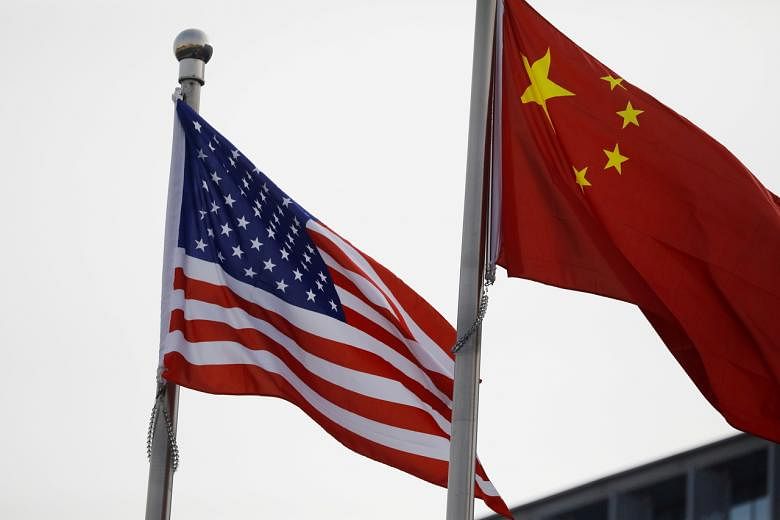
Education Minister Chan Chun Sing said it was misleading to compare current US-China tensions with the US-Soviet Cold War competition. PHOTO: REUTERS

Justin Ong
Political Correspondent
NOV 10, 2021
SINGAPORE - In the face of great power rivalry between the United States and China, Singapore will choose principles and its own interests instead of taking sides without regard for issue and context.
The Republic also believes countries need to rise above their differences to work together on a global agenda for public health, sustainability and the digital economy, said Education Minister Chan Chun Sing.
He was speaking on Tuesday (Nov 9) at the 41st Fullerton Lecture organised by the International Institute for Strategic Studies (IISS), a London-based think-tank.
He said: "We take principled positions in our own long-term national interests to uphold the rule of international law in the global order, so that might does not equal right.
"When we decide our positions on this basis, we will then be the reliable, steadfast, and consistent partner that others have come to know us for, and what we stand for."
Principles such as an inclusive, open and connected global security and economic architecture, Mr Chan added, are key to Singapore's continued success.
Mr Chan's audience - about 150 people who attended in person at The Fullerton Hotel and hundreds more who joined virtually - was made up of business leaders, diplomats, policymakers and international affairs experts.
In his speech, Mr Chan called on countries to go beyond debate and come together to establish new norms for the digital commons.
He also suggested new and sustainable solutions for a greener world, and highlighted the need to pool resources to recover from the current Covid-19 pandemic, and also prepare for the next pandemic.
Since its founding, Singapore has committed to treasuring and stretching its limited resources to leave behind a better world for future generations, Mr Chan said, "possibly even before the term 'sustainability' entered popular lexicon".
Mr Chan's Fullerton Lecture is the latest in a series of talks on regional and global security issues.
It also featured a question-and-answer segment chaired by IISS-Asia executive director James Crabtree, who last week wrote a Straits Times commentary in which he said Mr Chan would be the first fourth-generation, or 4G, leader to give a major geopolitical speech in the wake of the pandemic.
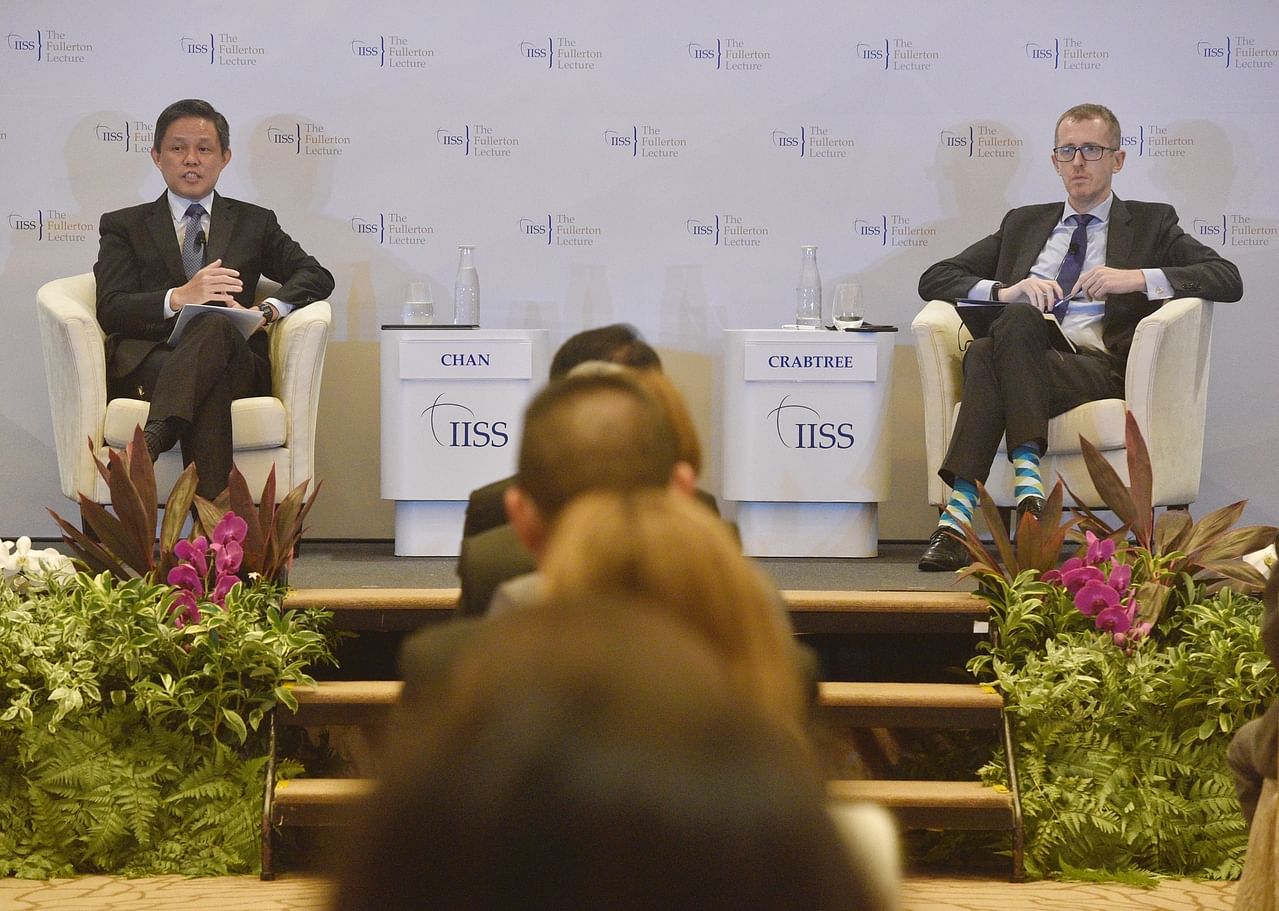
Education Minister Chan Chun Sing and IISS-Asia Executive Director James Crabtree at the 41st Fullerton Lecture on Nov 9, 2021. ST PHOTO: DESMOND WEE
The minister was asked if his remarks suggested that Singapore was moving from simply not wanting to choose sides towards a more proactive stance in terms of wanting to support principles.
He replied that Singapore's inclination to consider each issue carefully and take principled positions was in fact a consistent approach throughout its history.
"We need to do that in order to maintain our credibility," he said. "It's a hard task. We have no illusions about it but if we are consistent, we are principled, we are trusted, I think it makes the job that much easier.
"We will continue to go on that trajectory to make ourselves relevant."
Earlier, during his speech, Mr Chan, who was trade and industry minister from 2018 till May this year, said the US and China have more common interests than they might perhaps wish to acknowledge.
These include ensuring global security and trading orders remain peaceful, stable and connected - even if the two major powers conceive "order" differently - and that strategic lines of communication stay open.
Mr Chan said: "Both are rational nuclear powers and know that war risks mutual assured destruction.
"Both need to secure their global supply chains. Both need the world as their markets. And both want to have secured and connected data flows and networks."
That is why their interdependence across several domains means that "total across-the-board" decoupling is unlikely, added Mr Chan.
"Both of them want to be respected by the other and the rest of the world. Neither would like to see conflict arise because of miscalculation."
Shared interests aside, the US and China are also grappling with similar domestic challenges, said Mr Chan, citing inequality, middle-class struggles, geographical disparity in economic development, and an increasing need to invest in new technologies and training of workers.
He also said it was misleading to compare current US-China tensions with the US-Soviet Cold War competition that spanned decades after World War II.
Where the US and the Soviet Union competed to see which of their differing political and economic systems would prevail, the US and China are both vital components of a single global system and compete within that system, Mr Chan said.
Mr Chan, who was Singapore Armed Forces chief of army before entering politics, said success will not be determined by who can knock the other down.
And neither country can decisively do that to the other without causing damage to oneself, he added.
Instead, the spoils will go to whoever can best "exercise global leadership through the power of their example, rather than the example of their power", Mr Chan said.
US President Joe Biden has twice in his 10-month term used similar language.
Mr Chan said to do so entails acting in enlightened, rather than narrow, self-interest - with the pandemic and climate change issues faced by nations everywhere being two examples.
"There is tremendous opportunity for both the US and China to focus on these global challenges... to win the world over."
The rest of the world, meanwhile, also has responsibility and agency to shape outcomes, he added.
"We can avoid a zero-sum mentality. It is a false dichotomy that one side must lose, for the other side to win. We can send a clear message that we will act on principle, and do not wish to be corralled into taking sides.
"Taking sides regardless of issues and context, breeds irrelevance. And if one is irrelevant, it will almost certainly require taking sides."
A man cheated. Of his rightful place.Singapore takes principled positions, not sides in US-China rivalry: Chan Chun Sing

Education Minister Chan Chun Sing said it was misleading to compare current US-China tensions with the US-Soviet Cold War competition. PHOTO: REUTERS

Justin Ong
Political Correspondent
NOV 10, 2021
SINGAPORE - In the face of great power rivalry between the United States and China, Singapore will choose principles and its own interests instead of taking sides without regard for issue and context.
The Republic also believes countries need to rise above their differences to work together on a global agenda for public health, sustainability and the digital economy, said Education Minister Chan Chun Sing.
He was speaking on Tuesday (Nov 9) at the 41st Fullerton Lecture organised by the International Institute for Strategic Studies (IISS), a London-based think-tank.
He said: "We take principled positions in our own long-term national interests to uphold the rule of international law in the global order, so that might does not equal right.
"When we decide our positions on this basis, we will then be the reliable, steadfast, and consistent partner that others have come to know us for, and what we stand for."
Principles such as an inclusive, open and connected global security and economic architecture, Mr Chan added, are key to Singapore's continued success.
Mr Chan's audience - about 150 people who attended in person at The Fullerton Hotel and hundreds more who joined virtually - was made up of business leaders, diplomats, policymakers and international affairs experts.
In his speech, Mr Chan called on countries to go beyond debate and come together to establish new norms for the digital commons.
He also suggested new and sustainable solutions for a greener world, and highlighted the need to pool resources to recover from the current Covid-19 pandemic, and also prepare for the next pandemic.
Since its founding, Singapore has committed to treasuring and stretching its limited resources to leave behind a better world for future generations, Mr Chan said, "possibly even before the term 'sustainability' entered popular lexicon".
Mr Chan's Fullerton Lecture is the latest in a series of talks on regional and global security issues.
It also featured a question-and-answer segment chaired by IISS-Asia executive director James Crabtree, who last week wrote a Straits Times commentary in which he said Mr Chan would be the first fourth-generation, or 4G, leader to give a major geopolitical speech in the wake of the pandemic.

Education Minister Chan Chun Sing and IISS-Asia Executive Director James Crabtree at the 41st Fullerton Lecture on Nov 9, 2021. ST PHOTO: DESMOND WEE
The minister was asked if his remarks suggested that Singapore was moving from simply not wanting to choose sides towards a more proactive stance in terms of wanting to support principles.
He replied that Singapore's inclination to consider each issue carefully and take principled positions was in fact a consistent approach throughout its history.
"We need to do that in order to maintain our credibility," he said. "It's a hard task. We have no illusions about it but if we are consistent, we are principled, we are trusted, I think it makes the job that much easier.
"We will continue to go on that trajectory to make ourselves relevant."
Earlier, during his speech, Mr Chan, who was trade and industry minister from 2018 till May this year, said the US and China have more common interests than they might perhaps wish to acknowledge.
These include ensuring global security and trading orders remain peaceful, stable and connected - even if the two major powers conceive "order" differently - and that strategic lines of communication stay open.
Mr Chan said: "Both are rational nuclear powers and know that war risks mutual assured destruction.
"Both need to secure their global supply chains. Both need the world as their markets. And both want to have secured and connected data flows and networks."
That is why their interdependence across several domains means that "total across-the-board" decoupling is unlikely, added Mr Chan.
"Both of them want to be respected by the other and the rest of the world. Neither would like to see conflict arise because of miscalculation."
Shared interests aside, the US and China are also grappling with similar domestic challenges, said Mr Chan, citing inequality, middle-class struggles, geographical disparity in economic development, and an increasing need to invest in new technologies and training of workers.
He also said it was misleading to compare current US-China tensions with the US-Soviet Cold War competition that spanned decades after World War II.
Where the US and the Soviet Union competed to see which of their differing political and economic systems would prevail, the US and China are both vital components of a single global system and compete within that system, Mr Chan said.
Mr Chan, who was Singapore Armed Forces chief of army before entering politics, said success will not be determined by who can knock the other down.
And neither country can decisively do that to the other without causing damage to oneself, he added.
Instead, the spoils will go to whoever can best "exercise global leadership through the power of their example, rather than the example of their power", Mr Chan said.
US President Joe Biden has twice in his 10-month term used similar language.
Mr Chan said to do so entails acting in enlightened, rather than narrow, self-interest - with the pandemic and climate change issues faced by nations everywhere being two examples.
"There is tremendous opportunity for both the US and China to focus on these global challenges... to win the world over."
The rest of the world, meanwhile, also has responsibility and agency to shape outcomes, he added.
"We can avoid a zero-sum mentality. It is a false dichotomy that one side must lose, for the other side to win. We can send a clear message that we will act on principle, and do not wish to be corralled into taking sides.
"Taking sides regardless of issues and context, breeds irrelevance. And if one is irrelevant, it will almost certainly require taking sides."

Negotiating clashing Chinese, S'porean identities amid China's growing influence

Justin Ong
Political Correspondent
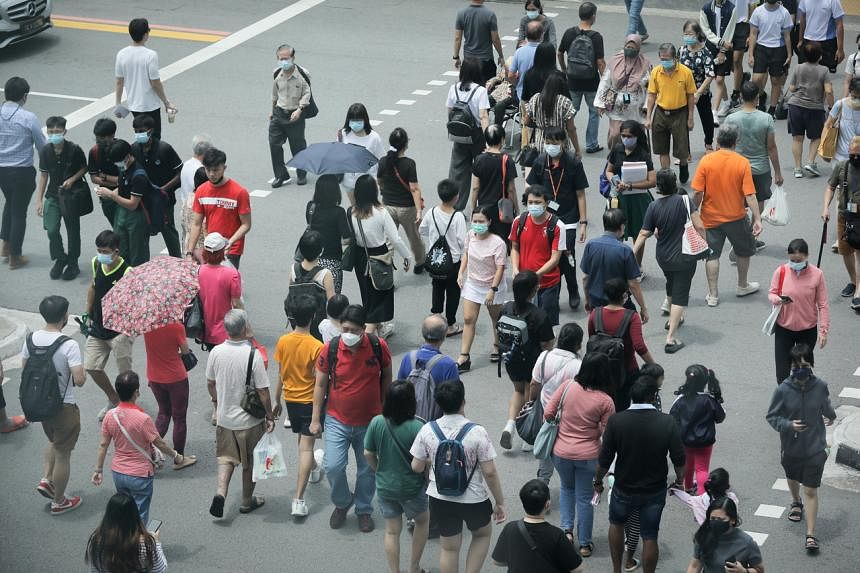
Singapore was ranked second in the world in a study measuring China's expanding influence on countries. ST PHOTO: ONG WEE JIN
May 2, 2022
SINGAPORE - Singaporeans might be accustomed to seeing their country top various global rankings, but one would imagine eyebrows being raised in surprise at the Republic coming in second on a worldwide index measuring Chinese influence.
Dubbed the China Index, it puts Singapore behind only Cambodia - perceived in some quarters as a quasi-vassal state of China - in a ranking of 36 countries by their exposure to, pressure and effect of Chinese influence. Out of nine domain areas, Singapore was found to be most susceptible in technology, society and academia; but less so for domestic politics.
However, reactions have largely been reserved, with some pointing to Singapore's majority ethnic Chinese population - it is the only country outside of Greater China to have one - and embrace of Chinese culture to rationalise the findings in the report.
A commenter on an online forum said those critical of Chinese influence in Singapore are "naive", declaring that "our ancestors come from China… people always complain about the Communist Party of China (CPC), but the fact is, China is prosperous today", before going on to slam the United States for being in a "shambles".
What do such sentiments suggest? That there is, as some observers have already noted, at times a casual, even careless, blending of Chinese ethnic and cultural affinities with the politics and policies of China's ruling party - all lumped under an ill-defined umbrella of "Chineseness".
This, in turn, has ramifications for a young Singapore whose common national identity remains in flux or as former top diplomat Bilahari Kausikan describes it, "is still malleable and being pulled in different directions by different influences".
Conflating Chineseness
The report echoes one released in September last year by French think-tank Irsem, which described China’s efforts to infiltrate and coerce states around the world. A chapter was devoted to Singapore and how it is particularly vulnerable to Chinese influence.But some Singaporeans have also voiced suspicion about the motives and what they see as an "obvious bias" of Doublethink Lab, the Taiwan-based civil society outfit which authored the China Index.
"For me, anything from Taiwan will be skewed towards Western views and interpretation… the findings will not be objective," says retiree Ronald Lim, 76.
Tensions between China and Taiwan have risen in recent years. Beijing views Taiwan as a renegade province to be reunified by force if need be, while the democratically ruled island - which raised its alert level in response to Russia's February invasion of Ukraine - rejects these sovereignty claims.
For some individuals whom I met while researching a Straits Times CloseUp documentary titled China Calling, being ethnically Chinese necessarily means throwing their weight behind what they see as an incontrovertible fact that Taiwan "belongs" to China.
China's rise to global supremacy would not be complete without Taiwan's return to "one China" - the standpoint that both are part of the same country - and inextricably linked to the rise of the Chinese people, they say.
As IT engineer Victor Low, 50, tells me: "My race is Chinese… I still feel part of the Chinese bloodline, and I want to see that bloodline prosper again, as it did hundreds of years ago."
Most of my interviewees were also considerably immersed in the Chinese cultural sphere - regularly consuming Chinese-language news, TV shows, music and frequenting Chinese platforms such as WeChat and Weibo.
Appreciating one's ethnic Chinese identity and the culture behind it is not the issue. Associating and tying these with the fates of the Chinese state and its ruling CPC - unconsciously or otherwise - is, and fits right into the nationalist narrative and larger sphere of influence that Beijing is cultivating.
In a speech marking the CPC's centenary last year, Chinese President Xi Jinping repeated a call for "all the sons and daughters of the Chinese nation, both at home and abroad" to unite behind the goal of China's "national rejuvenation".
Political scientist Chong Ja Ian from the National University of Singapore says: "Defining everything 'Chinese' as synonymous with the PRC (People's Republic of China) state and the CPC is something that makes sense for PRC state-building efforts."
Sense of Singaporean self
Mr Kausikan, the retired diplomat, has spoken at length on the dangers of ethnic Chinese Singaporeans showing sympathy and sentimentality for China, and its expanding interests."It can undermine the multiracial and multicultural character of Singapore, and stress our social cohesion. Indeed, I think it has already begun to do so," he says.
An oft-cited Pew Research Centre survey from June 2021 found that Singaporeans were the only ones among developed economies in the Asia-Pacific to view China more favourably than the US.
And this breaks along ethnic lines: About 72 per cent of Chinese Singaporeans had favourable views of China, compared with 45 per cent of Malays and 52 per cent of Indians here.
There is little doubt the Singapore Government treats race as an existential issue and has endeavoured to project a unique Singaporean identity centred on the unity of the different ethnicities. But how this translates on the ground is less certain.
Back in 2009, in his book Can Asians Think?, former diplomat Kishore Mahbubani wrote that some Chinese Singaporeans may be drawn to their Chinese origins in "an effort to define their own personal, social and national identities in a way that enhances their sense of self-esteem in a world where their immediate ancestors had subconsciously accepted that they were lesser beings in a Western universe".
Today, it appears this search for confidence in one's own worth continues - and at least among those interviewed for the ST documentary - has been layered with some degree of underlying dissatisfaction at what it means to be Singaporean.
Mr Kilmar Wong, 43, who is self-employed, says he identifies more closely with Chinese traditions and values.
Mr Low says: “It’s not so much that I want to move to China or be a Chinese citizen, but I just feel that they are taking care of their people more so than the Singaporean government is taking care of Singaporeans.” He sees Singapore as the only place in the world where foreigners are more valued than locals.
Observers have suggested that the way forward is to emphasise commonly held principles - to not just foster a sense of belonging and solidarity, but to also transcend a brand of pragmatism that Singaporeans have come to be known for.
Associate Professor Chong says the national pledge and its ideas of democracy, justice and equality is a good place to start.
How Singaporeans, including those in authority, hold themselves and one another to account on these values is then the key question that must be explored - with an eye on a simple objective as outlined by Prof Chong: "To help Singaporeans - especially of the next generation - develop a clearer, positive sense of who we are."
Forum: Natural for Chinese Singaporeans to have affinity for China
May 7, 2022Two recent articles in The Straits Times reported on China's growing influence in Singapore (S'pore second most influenced by China, says new report, April 27; and Negotiating clashing Chinese, Singaporean identities amid China's growing influence, May 2).
I find, however, former diplomat Bilahari Kausikan's warning that favourable views held by Chinese Singaporeans towards China "can undermine the multiracial and multicultural character of Singapore, and stress our social cohesion" to be an overreaction.
I believe most Singaporeans are well-informed enough to understand that China has achieved much in the last few decades and its policies and actions have far-reaching consequences and implications for all nations, including Singapore.
It seems natural for Chinese Singaporeans to have some special affinity for China because of racial and cultural closeness. In addition, most Chinese Singaporeans will have some emotional attachment to China since their ancestors came from there.
In my view, based on more than 12 years of living and working in mainland China, Hong Kong and Taiwan, Chinese Singaporeans are more Westernised and have the lowest degree of "Chinese-ness".
A fairly sizeable proportion of Chinese Singaporeans are quite unfamiliar with Chinese history, traditions and culture. Some cannot speak the Chinese language or any Chinese dialect effectively.
Yet most Chinese Singaporeans, like their non-Chinese fellow Singaporeans, are watching the rise of China with keen interest in the hope that Singapore will benefit from this rise.
In this process, I am confident that all Singaporeans will continue to retain their cherished values of multiracialism, multiculturalism, multi-religiousness and multi-lingualism.
Ang Ah Lay
Forum: Natural for Chinese Singaporeans to have affinity for China
May 7, 2022
I find, however, former diplomat Bilahari Kausikan's warning that favourable views held by Chinese Singaporeans towards China "can undermine the multiracial and multicultural character of Singapore, and stress our social cohesion" to be an overreaction.
Wow, it's amazing how things have changed in the past five years. I remembered in those days when Kishore Mahbubani merely mentioned that Singapore had to be more pragmatic in its approach instead of simply following US, a whole pack of PAP traditional elites made use of the government controlled MSM to whack him non-stop at every opportunity for being "unpatriotic". This Bilahari Kausikan was also one of them IIRC.
Now all these articles from the ST come out and suddenly emphasize the need to be "balanced" to navigate the challenges from G2 rivalry. Even a letter from some random guy specifically calling out Bilahari Kausikan for overreacting gets published. Interesting change of times.
Wonder what the writer has to say about Indian influence on Singapore, CECA, Indians with fake degrees and vaccination certificates etc.
I can understand the pride that a significant number of Chinese Singaporeans take in China's economic growth, advancements in technology, growth in military strength, space explorations and other achievements (Natural for Chinese Singaporeans to have affinity for China, May 7).
However, the implications of this trend for race relations and Singapore's national interests as highlighted by former diplomat Bilahari Kausikan are not an exaggeration and reflect the current situation on the ground (Negotiating clashing Chinese, S'porean identities amid China's growing influence, May 2).
During the past few years, I have listened to Chinese friends who are openly supportive of China and very critical of the United States.
What concerns me is that it appears that some Chinese Singaporeans feel that almost everything about China is good and right, and that the reverse is true of the US, regardless of the facts.
Increasingly, they are consuming and being influenced by Chinese media outlets such as CGTN and the Global Times, which promote China's policies and interests.
The pride in China and being Chinese led some of my Chinese friends to opt for the Sinovac Covid-19 vaccine even though it offers lower levels of protection than the Western mRNA vaccines (Sinovac jabs not as effective in preventing severe disease: S'pore study, Dec 16, 2021).
Another thing that concerns me is how China has called on ethnic Chinese around the world to support China and its interests.
This is a reasonable expectation, as long as China uses its strength to promote peace and prosperity in the world. But this will become an issue if one day Singapore's interests were to clash with those of China.
We must also not forget that such attitudes may in the future affect our relations with the citizens of our immediate neighbours, some of whom seem to already view Singapore as a Chinese outpost.
I hope that Chinese Singaporeans will be objective in assessing China's actions without ignoring basic facts. This will create a positive atmosphere and enhance race relations in Singapore.
Vijayakumar P.T.
Forum: Hope for Chinese Singaporeans to objectively evaluate China's actions
May 10, 2022I can understand the pride that a significant number of Chinese Singaporeans take in China's economic growth, advancements in technology, growth in military strength, space explorations and other achievements (Natural for Chinese Singaporeans to have affinity for China, May 7).
However, the implications of this trend for race relations and Singapore's national interests as highlighted by former diplomat Bilahari Kausikan are not an exaggeration and reflect the current situation on the ground (Negotiating clashing Chinese, S'porean identities amid China's growing influence, May 2).
During the past few years, I have listened to Chinese friends who are openly supportive of China and very critical of the United States.
What concerns me is that it appears that some Chinese Singaporeans feel that almost everything about China is good and right, and that the reverse is true of the US, regardless of the facts.
Increasingly, they are consuming and being influenced by Chinese media outlets such as CGTN and the Global Times, which promote China's policies and interests.
The pride in China and being Chinese led some of my Chinese friends to opt for the Sinovac Covid-19 vaccine even though it offers lower levels of protection than the Western mRNA vaccines (Sinovac jabs not as effective in preventing severe disease: S'pore study, Dec 16, 2021).
Another thing that concerns me is how China has called on ethnic Chinese around the world to support China and its interests.
This is a reasonable expectation, as long as China uses its strength to promote peace and prosperity in the world. But this will become an issue if one day Singapore's interests were to clash with those of China.
We must also not forget that such attitudes may in the future affect our relations with the citizens of our immediate neighbours, some of whom seem to already view Singapore as a Chinese outpost.
I hope that Chinese Singaporeans will be objective in assessing China's actions without ignoring basic facts. This will create a positive atmosphere and enhance race relations in Singapore.
Vijayakumar P.T.
Wonder what the writer has to say about Indian influence on Singapore, CECA, Indians with fake degrees and vaccination certificates etc.
Forum: Hope for Chinese Singaporeans to objectively evaluate China's actions
May 10, 2022
Increasingly, they are consuming and being influenced by Chinese media outlets such as CGTN and the Global Times, which promote China's policies and interests.
The pride in China and being Chinese led some of my Chinese friends to opt for the Sinovac Covid-19 vaccine even though it offers lower levels of protection than the Western mRNA vaccines (Sinovac jabs not as effective in preventing severe disease: S'pore study, Dec 16, 2021).
Another thing that concerns me is how China has called on ethnic Chinese around the world to support China and its interests.
Vijayakumar P.T.
This particular paragraph is already evidence that the writer Vijayakumar is himself influenced by the US/UK media much more than he likes to admit. CGTN and Global Times are not the usual sources of information amongst Singaporean Chinese, they are considered "boring official" channels and hardly anyone goes to them for the latest news. These two are official news channels that primarily target an international audience who is not proficient in Chinese.
I submit the only reason why Vijayakumar P.T. is even aware and cites these two media is because the western press has often implied these two outlets are official CCP propaganda mouthpieces whose main purpose is to go around psycho-ing people.
Also the main reason why a minority of Singaporeans go for Sinovac or Sinopharm is due to its lower prevalence of adverse side effects and/or general caution for new unproven mRNA technology. The idea that people choose China vaccines despite lower efficacy solely because of some hatred for US or patriotism for China is unfounded and more likely reflects the writer's personal bias and/or him falling under undue influence from reading too many ST articles.
US-China tensions threaten Asia's peace
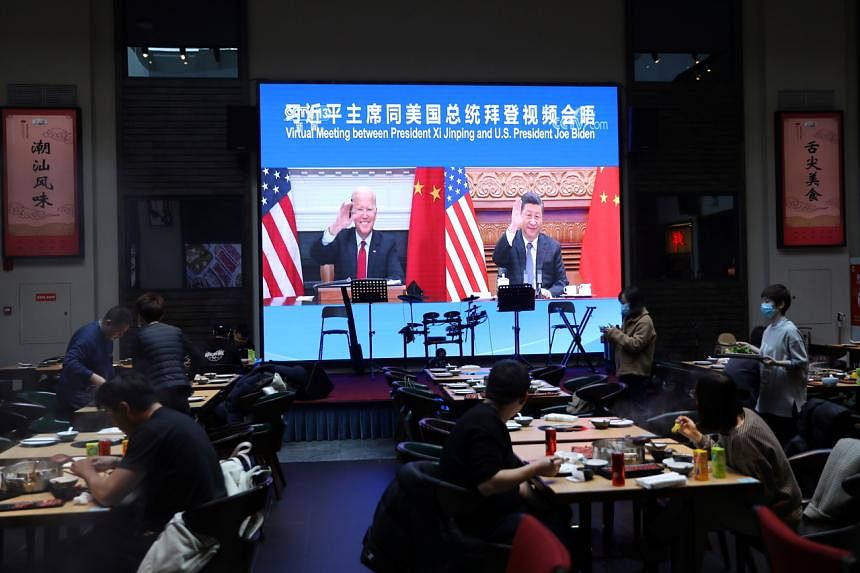
Diners at a Beijing restaurant watching as US President Joe Biden (left) and Chinese President Xi Jinping met via video link on Nov 16, 2021. PHOTO: REUTERS

Charissa Yong
US Correspondent
May 21, 2022
WASHINGTON - The rising tensions between the United States and China threaten Asia's peace and must be carefully managed to keep long-running flashpoints in the region from igniting into open conflict, said experts.
But the superpower rivalry is increasing the risk of military conflict between them in the Asia-Pacific, the International Crisis Group (ICG) wrote in a report on Friday (May 20) about strengthening US-China crisis management.
Making matters worse, their competition has become increasingly militarised in the South China Sea and Taiwan Strait. Their diplomatic interaction has also dwindled in recent years, raising the risk of each superpower misjudging the other's intentions in an accidental military collision, said the report.
Competition has heightened in recent months, especially in the area of security. Chinese President Xi Jinping's proposed "global security initiative" implicitly opposes the US Indo-Pacific strategy.
Meanwhile, US President Joe Biden's current visit to South Korea and Japan and meeting with leaders of the Quad - a grouping of the US, Japan, Australia and India seen as aimed at countering Beijing's growing clout in the region - will surely ruffle China's feathers.
But a breakdown in peace would be a great pity, especially given East Asia's "long period of astounding peace both between states and internally in most of the regional countries" since the 1980s, as historian Stein Tonnesson outlines in his 2017 book Explaining the East Asian Peace.
Professor Tonnesson, a research professor at Norway's Peace Research Institute Oslo, argues that this peace can be explained firstly by the rapprochement between China and the US in the 1970s, which led to a balance of power in the region.
Secondly, a number of East Asian economies decided to prioritise economic growth, which required external and internal stability.
Prof Tonnesson, who was not involved in the ICG report, told The Straits Times: "What we have seen in East Asia is a developmental peace. The big question is if it may continue."
He added: "The main threat to the East Asian peace comes from the mounting hostility and rivalry between China and the US. It is driven by China's rising power and the fear this creates in Washington, and also by worrisome internal developments in each of the two great powers."
On America's end, its political system suffers from an unprecedented polarisation between Republicans and Democrats, who compete with each other in displaying hostility towards China, Prof Tonnesson said.
On China's side, the Chinese party state has become highly centralised and authoritarian, with power concentrated in one man, he added.
"The East Asian peace has not been driven by any ideological dedication to peace as a visionary goal. It has evolved as a result of pragmatic decisions by governments focusing on economic development."
But today's global economic uncertainties make it harder for governments to pursue economic growth, Prof Tonnesson said. "This could tempt governments to focus on more dangerous goals, such as winning back 'lost territories'."
The Korean Peninsula situation was worrying, given North Korean leader Kim Jong Un's failed attempt to break out of his international isolation in 2018 with a series of summits, noted Prof Tonnesson.
"In a reaction to the pandemic in 2020, he chose to deprive his population of the benefits of trade with China, and even refused offers of vaccines. North Korea now faces a new, hostile government in South Korea, and is in a state of desperation," he said.
A 'crisis slide' and conflict resolution mechanisms
In 2018, Australian National University professor of strategic studies Brendan Taylor wrote that the region was in the throes of a "crisis slide" - defined as "a period in which the cumulative pressure of crises over multiple tension spots is pushing the area closer to conflict".Prof Taylor, whose book The Four Flashpoints examined the Korean Peninsula, East and South China Seas, and Taiwan Strait hot spots, told ST that the dynamics around these flashpoints have changed little since then.
"If anything, tensions have intensified over Taiwan. Kim Jong Un has continued to expand North Korea's nuclear and missile capabilities. China has continued to increase the time spent and the capabilities of its vessels operating in the vicinity of the disputed Senkaku/Diaoyu islands," he said.
"The superpower rivalry between China and the US is indeed making this situation worse."
Beijing and Washington displayed little, if any, inclination to work together to manage the pandemic and the Ukraine war, unlike their cooperation in previous crises, he noted.
For instance, in 2010 when the North Koreans sank a South Korean navy ship and bombarded a South Korean offshore island, coordination between Beijing and Washington was critical to ensuring that tensions between the two Koreas did not spiral into actual conflict, said Prof Taylor.
"There is little appetite in Beijing or Washington at present to play this kind of stabilising role in future Asian crises," he said. "This does not augur well should a major crisis erupt in Asia."
The ICG called for US-China crisis management mechanisms to be strengthened, citing as an example their 2014 agreement on rules of behaviour for air and maritime encounters.
Recurring defence dialogues like the Asean Defence Ministers Meeting Plus and the Shangri-La Dialogue in Singapore could also be useful avenues for both sides to clarify their intentions, it added.
"Given the poor state of relations, however, and the potential consequences of confrontation, even such minor progress would be welcome," wrote the ICG.
China and russia have already ask the american lackey to fuck off? Are you retarded? Enjoy angmoh oil prices
China's development is good for Asia, but countries want to maintain ties with Japan, US, Europe too: PM Lee
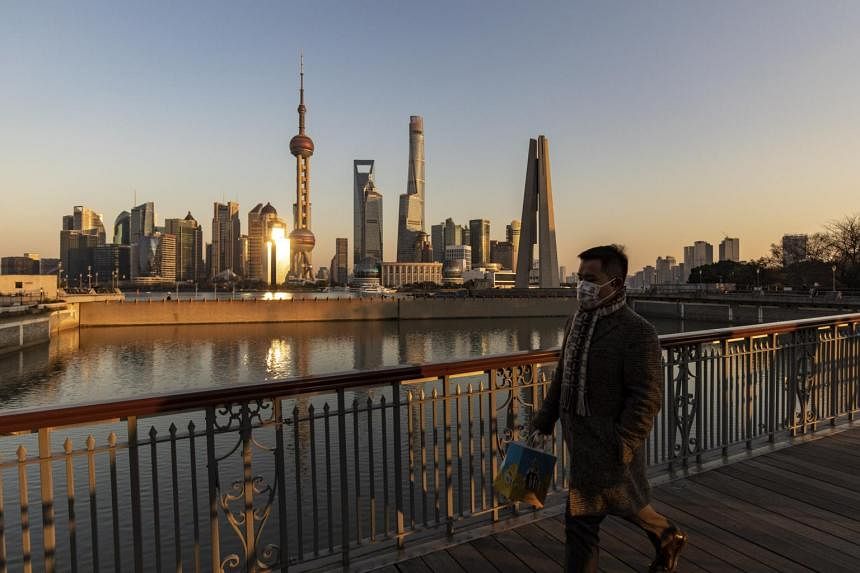
As China's economy grows and develops, its influence has grown and its impact on the regional economy has become considerable.
Timothy Goh
May 23, 2022
SINGAPORE - China's development is positive for the region, but countries in the Asia-Pacific also want to maintain their very important ties with other economies like Japan as well as the United States and Europe, Prime Minister Lee Hsien Loong said.
And countries like Singapore want to nurture these links with Japan, which is the next biggest economy in Asia by far, and maintain a balance so that they have resilience and are not overly dependent on any single party, he added.
"Overall, we can prosper together, benefit from our interdependence, and have the incentive to keep the region peaceful, stable and secure."
PM Lee was speaking in an interview with Japanese media group Nikkei on Friday (May 20), ahead of its International Conference on the Future of Asia, which he will be attending this week in Tokyo.
During the interview with Nikkei editor-in-chief Tetsuya Iguchi, published on Monday (May 23), PM Lee was asked about the tilt in the regional economic and military balance towards China over the past 10 years, as well as the role of the US and Japan in achieving "better balance" in the region.
In response, he acknowledged that as China's economy has grown and developed, its influence has grown and its impact on the regional economy has become considerable.
"They are the biggest trading partner of nearly every country in Asia, including Japan and Singapore. It is natural, and it is something which the regional countries generally welcome, because it creates opportunities for cooperation, trade, prosperity," he said, adding that many countries want to take advantage of the opportunities presented by China's growth.
PM Lee said: "China has also been engaging the region systematically. They have the Belt and Road Initiative. They now have the Global Development Initiative (GDI). Singapore supports these. We are a member of the Group of Friends of the GDI."
He added: "We think that it is positive, because it is far better that China is prospering and engaged in the region, than that it is operating on its own, outside the rules which apply to everybody else, not properly integrated and coordinated with the rest of the region.
"Or alternatively that it is unsuccessful, poor and troubled. That can cause a lot of difficulty for the region too."
PM Lee noted that the US has a big stake and substantial investments in the region, with foreign direct investment that is "much bigger than China's still, although China's outbound investment is growing".
Although the US is not as big a trade partner as China, a lot of the goods traded with China ultimately go on to the US, added PM Lee.
"Therefore, our economic ties with the US are very important."
PM Lee said that while it would be ideal for the US to join the Comprehensive and Progressive Agreement for Trans-Pacific Partnership (CPTPP) - a free trade agreement (FTA) between 11 countries in the region that, under Japan's leadership, built on the Trans-Pacific Partnership after the Trump administration withdrew from the deal - this would not be possible from a political standpoint.
Instead, the US has come up with a proposal for an Indo-Pacific Economic Framework, which is due to be launched this week, and which countries such as Japan and Singapore are planning to join.
"We support it, because it is a valuable sign that the Biden administration understands the importance of economic diplomacy in Asia.
"And we hope that one day, the political situation in America will enable them to resume talking about an FTA in some form, and talk about market access. But it may take some time," said PM Lee.
He noted that while the details of the framework have not been negotiated, four broad areas have been identified - trade, supply chains, clean energy and decarbonisation, and tax and anti-corruption.
Asked about the outcomes Singapore would like, he said: "We are interested in talking about digital economy, about green economy cooperation, sustainable energy, sustainable finance, carbon trading rules.
"We see the opportunity to come to an agreement and we would like to start talking."
Asked about whether countries in Asia rely too much on trade with China, PM Lee said: "You cannot afford not to do business with China. The opportunities are there, the markets are there, and you want to trade with them, and soon, many countries will be welcoming their investments as well.
"But at the same time, you would like to grow your trade, your links with the rest of the world, with EU (European Union), with America, even Africa and Latin America."
There is a need to look for potential all round the world, and to keep a balance, he added.
PM Lee said: "China is now a bigger part of the world economy, and therefore proportionately, you would expect more of your trade to go with China, I think that is a normal situation.
"If you say China is a big part, but I do not want to trade with them, it will not only be very costly, but you are setting up for more friction and less chances of maintaining the peace."
He was also asked about Singapore's view that China is welcome to join the CPTPP.
"We welcome China to join the CPTPP," he said. "They have to meet the standards. They say that they will do that... But in the end, the decision is made by the consensus of the members so the other members may well have different views."
Strengthening Singapore-Japan ties
Asked how Singapore and Japan can improve their relations, PM Lee first pointed to the area of the digital economy.Highlighting that Singapore has a Smart Nation initiative and Japan has its Digital Garden City Nation Vision initiated by Prime Minister Fumio Kishida, he said both nations can learn from each other to develop smart cities and how to do digital governance.
Both countries can also cooperate on alternative energy and developing sustainable economies.
PM Lee also noted that the Japan-Singapore Economic Partnership Agreement, established in 2002 and revised in 2007, needs to be updated again.
He added that Singapore would like to strengthen its air links with Japan, especially for flights to Tokyo's Haneda airport.
"The demand is there. Japan is still now restricting travel, but very soon, you will change your rules and we should prepare for that," he said.
S'pore should prepare for up to 30 years of US-China rivalry: George Yeo
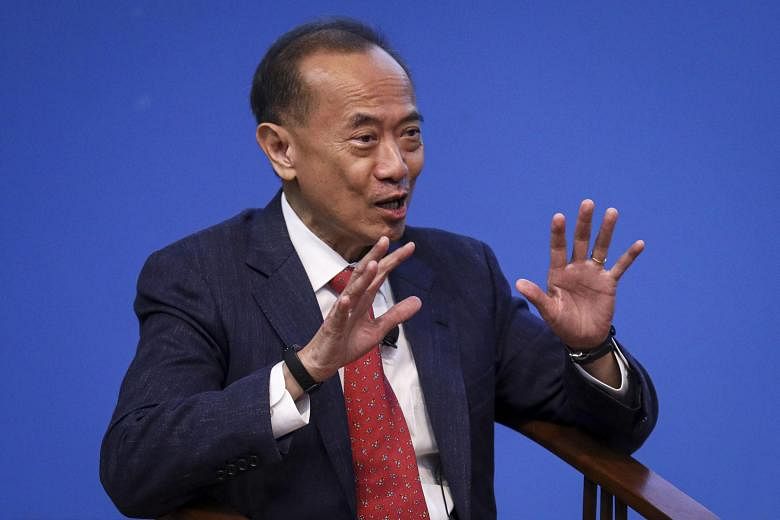
Former foreign minister George Yeo suggested that Singapore work on reconnecting with its South-east Asian neighbours and establishing its own identity. ST PHOTO: FELINE LIM

Justin Ong
Political Correspondent
JAN 11, 2022
SINGAPORE - Singapore should prepare for "easily" up to 30 years of competition between the United States and China, which could take the form of skirmishes off the sea or proxy wars, said former foreign minister George Yeo on Tuesday (Jan 11).
To avoid being caught in between and to maintain sovereignty, he suggested that Singapore work on reconnecting with its South-east Asian neighbours and establishing its own identity - one where being Singaporean means being "bigger" than just a nationality.
Mr Yeo, who is currently a visiting scholar at the Lee Kuan Yew School of Public Policy, was speaking as a panellist at a curtain-raiser for the annual Singapore Perspectives conference organised by the Institute of Policy Studies think-tank.
This year's event, with the theme "City", comprises seven virtual forums on Jan 13 and 17, and a physical conference on Jan 24.
Asked by moderator and ambassador-at-large Chan Heng Chee if he saw Singapore being among the great cities in the region and the world in the next two decades or so, Mr Yeo said that if the Republic can position itself well in a flourishing Asia, its prospects would be bright.
"There's no guarantee because we're in competition with others. There's always the possibility that we may make bad mistakes," he added.
"For example, the current tension between the US and China will mark this period of history and it will go on for years to come… sometimes high tension, sometimes low tension."
Mr Yeo said that if Singapore remains just a city-state, it would find itself frequently between a rock and a hard place.
Singapore thus needs to organically "reroot" itself in the region and become a capital city of Asean, he added, noting Singapore's links to other members of the 10-nation bloc through their sizeable communities here.
Working through Asean, Singapore can better navigate the big powers - not by taking sides, but by leaning "a little to the other side" in the event anyone pushes Singapore too hard.
Mr Yeo said Singapore's leaders must have the foresight to steer the nation away from potential conflict and danger.
"We are part of many networks - the American network, the Chinese network, the Indian network. And every network has to capture us, naturally, so we have to be careful," he cautioned. "We are friendly to everybody, but we are autonomous."
Also taking part in the in-person panel discussion was former chief city planner Liu Thai Ker, though their audience was an online one. Viewers could submit questions - one of which was how Singapore could thrive amid conflicting spheres of influence between China and the US.
Mr Yeo said the challenge for the country - where about three-quarters of the population identify as ethnically Chinese - was not outside but "inside".
"Who are we as Singaporeans?" he asked. "Is Singapore just a facility, a convention centre, a good hotel, a restaurant - or is it something more? Does it stand for values which others are happy to associate with?"
Mr Yeo added: "Singapore is special because our different communities retain their ancestral cultures… and we encourage them to be proud of their ancestral cultures. Our diversity is not based upon everybody curbing themselves to become Singaporean, but everybody being bigger in accepting others who are not like themselves.
"If we can make this happen - that to be Singaporean is to be bigger than what you were when you were in China or India or Indonesia or Thailand… then to be a Singaporean is to become bigger."
Mr Yeo said this, and questions around how Singaporeans relate to one another, was something to think deeply about.
"The more comfortable we are with our own identity, the more open we'll be," he said. "If I know who I am, I can accept you for who you are… So identity is important, and Singapore's identity is complicated because it is made up of constituent identities."
China and US evil BE will forever enemy for life time. It all started in 1750 the beginning of the opium trade war.... 你拜初一 我就拜十五...
Keep your friends close and your enemy closer.... having enemy with gunboats will help you make better gunboats to kill them....
US President Biden formally unveils Indo-Pacific Economic Framework
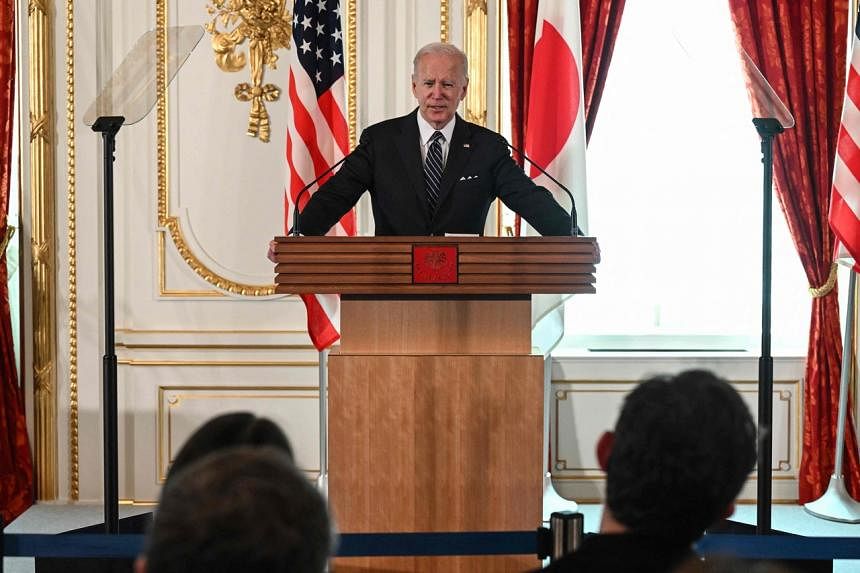
US President Joe Biden formally unveiled the Indo-Pacific Economic Framework for Prosperity on his second day in Japan. PHOTO: AFP
UPDATED
MAY 23, 2022
TOKYO (AFP) - President Joe Biden launched a new Asia-Pacific trade initiative on Monday (May 23) in Tokyo, with 13 countries including India and Japan signing up, although questions about the pact's effectiveness remain.
Biden formally unveiled the Indo-Pacific Economic Framework for Prosperity, or IPEF, on his second day in Japan, where he is also held talks with Prime Minister Fumio Kishida before joining a regional Quad summit on Tuesday.
“I believe we’ll win the competition of the 21st century together,” he said at the launch, attended in person by Kishida and Indian Prime Minister Narendra Modi, and virtually by representatives from the other countries.
"This framework is a commitment to working with our close friends and partners in the region on challenges that matter most to ensuring economic competitiveness in the 21st century," he said.
Unlike traditional trade blocs, there is no plan for IPEF members to negotiate tariffs and ease market access - a tool that has become increasingly unpalatable to US voters fearful of seeing homegrown manufacturing undermined.
Instead, the programme foresees integrating partners through agreed standards in four main areas: the digital economy, supply chains, clean energy infrastructure and anti-corruption measures.
The starting list of members in addition to the United States is Australia, Brunei, India, Indonesia, Japan, Malaysia, New Zealand, the Philippines, Singapore, South Korea, Thailand and Vietnam.
The countries touted IPEF as a framework for what will ultimately become a tight-knit group of trading nations.
"We share a commitment to a free, open, fair, inclusive, interconnected, resilient, secure, and prosperous Indo-Pacific region," they said in a joint statement.
"Deepening economic engagement among partners is crucial for continued growth, peace, and prosperity."
Rebuilding alliances
Together, the participants account for about 40 per cent of global GDP and "there are other countries that could conceivably join us", Biden's national security adviser, Jake Sullivan, told reporters.Biden has pushed to rapidly rebuild strategic military and trade alliances weakened under his predecessor Donald Trump since taking office in 2021.
IPEF is intended to offer US allies an alternative to China's growing commercial presence across the Asia-Pacific.
However, there is no political will in Washington for returning to a tariffs-based Asia trade deal following Trump's 2017 withdrawal from the Trans-Pacific Partnership - a huge trading bloc that was revived under a new name in 2018, without US membership.
While the TPP reduces trade barriers for members, US Secretary of Commerce Gina Raimondo emphasised to reporters that IPEF was not designed to go down the same route.
The "framework is intentionally designed not to be a same old, same old traditional trade agreement", she said.
Even so, Japan's Kishida said there is still an appetite for US involvement in the larger pact abandoned by Trump.
The country welcomes the new framework and will "participate and cooperate", he said, but "from a strategic standpoint, Japan hopes that the United States will return to the TPP".
No Taiwan
China has criticised IPEF as an attempt to create a closed club. Sullivan rejected this, saying "it is by design and definition an open platform".Taiwan, the self-governing island that China claims sovereignty over, has pointedly not been brought into the initial line-up - despite being an important link in supply chains for microchips.
Sullivan said nevertheless that the United States is "looking to deepen our economic partnership with Taiwan, including on high-technology issues, including on semiconductors and supply chains".
This will happen, however, only "on a bilateral basis".
The United States faces scepticism, given the lack of incentives to go along with IPEF's plan for smoother integration.
Without offering increased access to the huge US market, it is unclear what enforcement mechanisms could be applied.
But Raimondo said that if IPEF had been in place before the Covid-19 pandemic triggered mass economic shutdowns, the United States would have "experienced much less disruption".
And more broadly, the US trade-boosting initiative is welcomed by businesses that "increasingly look for alternatives to China", she said.
Beijing says US-backed Asia plan seeks to 'decouple' countries from China
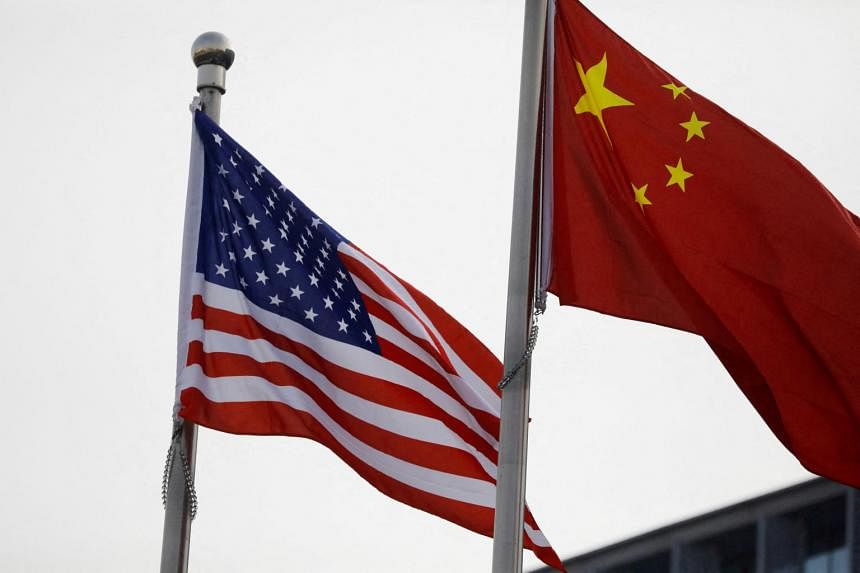
The Indo Pacific Economic Framework for Prosperity serves US interests and seeks to exclude other countries. PHOTO: REUTERS
MAY 25, 2022
BEIJING (REUTERS) - China's foreign ministry said on Wednesday (May 25) a US-backed economic plan for Asia seeks to decouple countries from the Chinese economy, but many countries are worried about the "huge cost" of doing so.
Speaking at a regular press briefing, ministry spokesman Wang Wenbin said the Indo Pacific Economic Framework for Prosperity (IPEF) serves US interests and seeks to exclude other countries.
US President Joe Biden launched this plan on Monday.
Initial founding countries include Australia, Brunei, Indonesia, Japan, New Zealand, Singapore, South Korea, Thailand, Vietnam and the United States, but not China.
Asean nations take comfort from not being forced by US and China to choose sides: Ng Eng Hen
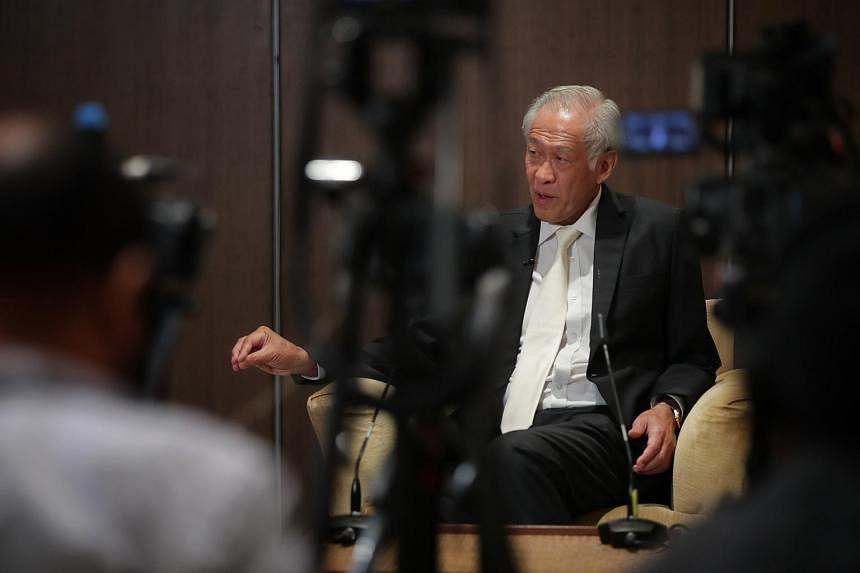
Dr Ng Eng Hen conducts his wrap-up interview at the end of the IISS Shangri-La Dialogue 2022 on June 12, 2022. ST PHOTO: GIN TAY
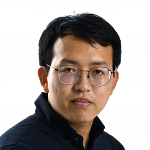
Lim Min Zhang
Assistant News Editor
June 12, 2022
SINGAPORE - Asean states will take comfort that defence leaders of the United States and China met at the Shangri-La Dialogue, with both separately saying they are not compelling the region to take sides.
Both countries have said there is no need to choose, and that they do not want Asean states to choose, said Singapore's Defence Minister Ng Eng Hen.
"Whether that is the reality, I think only the facts will speak for themselves," he told reporters on Sunday (June 12) at the end of the summit.
Dr Ng was responding to a question on South-east Asian countries' reaction to statements by US Defence Secretary Lloyd Austin and Chinese Defence Minister Wei Fenghe, who were both headline speakers at the three-day defence summit.
Dr Ng noted that Asean countries would take comfort that both defence leaders had their first in-person meeting in Singapore, notwithstanding American reservations that the level of representation from the Chinese side was not at the right level.
Mr Austin had previously asked to hold talks with General Xu Qiliang, vice-chairman of China's Central Military Commission.
Dr Ng said: "But the very fact that both defence ministers met, it did give some comfort.
"Because you have to, in that sense, know your competitor or antagonist physically - that would give you a proper measure of the man. So I think that was reassuring."
While it is a stretch to suggest that one meeting has improved US-China relations - one of the themes at the Shangri-La Dialogue - it might give pause to both sides as they work out their differences, said Dr Ng.
Asean countries will continue to work within the Asean Defence Ministers' Meeting-Plus (ADMM-Plus) dialogue to be held at the end of this year, where China and the US will again be present.
"This is a conversation, this is a journey. This is the reality and that would be how I would characterise it, there is no summative experience or summative conclusion.
"It's just too complex a problem. The Cold War took a good part of 50 years, so why should we expect this to be resolved within a couple of decades?" said Dr Ng.
In his 30-minute interview, Dr Ng took questions ranging from whether it was the right decision for Russia not to be invited, and a possible expansion of the ADMM-Plus to include more European dialogue partners.
Both France and Canada's defence ministers had reiterated, in speeches made at the Shangri-La Dialogue, their country's desires to be part of the 18-member grouping.
The ADMM-Plus consists of Asean, Australia, China, India, Japan, New Zealand, Republic of Korea, Russia and US.
Dr Ng said the expansion was something that Asean defence ministers agree on in principle, but more work needs to be done.
"We are at the stage where you have to work out how, and how do you digest this. You don't want to have indigestion or in practical terms, where you're a member and there's no activity, and that's not what we're after," he said.
As early as 2013, France expressed its wish to participate in the activities of ADMM-Plus. Canada has also appealed on previous occasions.
As for how Singapore is advancing its own capabilities following the Dialogue, Dr Ng pointed to agreements that the Singapore defence establishment has signed with its counterparts, including with South Korea, France, and China.
An agreement signed on Friday with South Korea is meant to enhance cooperation between defence media agencies in defence content production, media technology, and industry partnerships.
One area of focus is in strategic communications, said Dr Ng, adding that the idea is to teach Singapore's Ministry of Defence and Singapore Armed Forces communications teams how to produce K-pop, to reach out to audiences.
"So we go to a military that has got strengths, and then we want to learn from them," he said.
Other agreements signed include a mutual logistics support arrangement with France, and one with China to allow more professional exchanges between military officers.
On whether Russia should have been invited, Dr Ng said it was understandable given the proximity of the Ukraine invasion.
But he added that there were practical issues, such as other participants walking out should Russia attend.
This year's Shangri-La Dialogue was valuable, with the pent-up desire to meet physically, he said.
"The constant refrain was that nothing replaces face-to-face meetings. That's always true, especially for diplomacy."
The right questions were also being asked about how the Ukraine invasion affects this part of the world, and the lessons that should be learnt.
Even though Ukraine is, as its President Volodymyr Zelenskyy said during a special address at the summit, fighting for principles for the rest of the world, principles along were insufficient, said Dr Ng.
"What you need to do is, as President Zelenskyy said, preemption. How do you prevent the situation from getting to conflict, because once conflict occurs, it's too late."
"And the basic lesson is that you have to build, use this time of peace in Asia to build trust, strategic trust and confidence, if you want to stay very far away from the line of conflict.
"So I think those aspects, in and of themselves, make the Shangri-La Dialogue valuable," added Dr Ng.
Similar threads
- Replies
- 11
- Views
- 714
- Replies
- 26
- Views
- 1K
- Replies
- 12
- Views
- 989
- Replies
- 0
- Views
- 411
